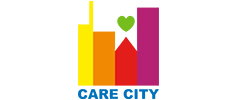Our Aims
Introduction
As part of the Test Bed programme – run by NHS England and the Office for Life Sciences we are prototyping an enhanced, digitally supported role for domiciliary care staff, known as ‘expert care’. However, if this role is to grow and spread, it needs not only to demonstrably improve outcomes and experiences and reduce costs, but to be a role that domiciliary care staff can learn accessibly.
To work as Expert Carers, domiciliary carers need to learn how to use digital tools, and to develop the wider health knowledge and system knowledge to use them safely and effectively. With funding from the Ufi Trust, we are working with Barking & Dagenham College to develop an e-learning platform and a set of resources to support the blended learning of expert care by domiciliary carers – e-Care. The platform will also cover specific guidance on careers as a domiciliary carer, as well as communications support around having difficult conversations and give Care Home Managers access to learning and guidance to support them in supervising their staff.
What is the need for e-Care?
• Well-trained and dedicated staff contribute to the delivery of high-quality, person-centred care and support*
• New British Geriatrics Society guidelines suggest that care homes should monitor patients’ vital signs in the way nursing homes do
• COVID-19 has increased the demand for care staff to have the skills to spot the soft signs of deterioration
Why is this so important?
• Employers with a turnover of less than 10% cite the importance of developing social care staff talent and skills to allow them to grow with the organisation*
• Investing in learning and development can support in retaining care staff. Adult social care employers with a ‘good’ or ‘outstanding’ Care Quality Commission (CQC) rating had a lower staff turnover rate than those rated either requiring improvement or inadequate*
*Skills For Care – Recruitment and retention in adult social care: secrets of success
What is e-Care?
The aim of the app is to ensure carers are able to better detect when a service user is becoming unwell, and understand how to use a number of digital tools to gather important information to help a health professional to make a diagnosis, or initiate prompt treatment.
• Increase carers’ understanding of the main body systems
• To spot the soft signs of deteriorating health
• Teach them how to use digital health tools to take observations
• Empower carers to feel confident to share information appropriately with healthcare professionals
• Provide Care managers with the support they need to enable their staff’s development
What are the benefits to the employer?
“Key workers such as homecare workers now have the opportunity to gain more knowledge and grow in confidence when delivering care provisions, thanks to the E-Care app and the information it taps into”.
Tajinder Bains, Branch Director, Kare Plus
Who’s involved? The key stakeholders
Click the logos to see more!


